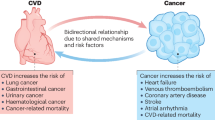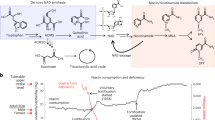Abstract
Background/Objectives
Prior studies linked higher blood phytoestrogen (phytoE) levels of daidzein to beneficial lipoprotein profiles, and higher genistein levels related to worse coronary microvascular dysfunction in women with suspected ischemic heart disease (IHD). However, relationships to adverse outcomes remain unclear. We investigated the associations between eight serum phytoE and major adverse cardiac events (MACE) including myocardial infarction, stroke, hospitalization for heart failure and angina, cardiovascular and all-cause mortality, in women undergoing functional coronary angiography (FCA) for suspected ischemia.
Subjects/Methods
We evaluated 143 women enrolled in the Women’s Ischemia Syndrome Evaluation (1996–2001) for serum phytoE levels and 10-year outcomes. Median follow-up duration was 6.08 years (range 0.01–8.16) for time to MACE and 9.11 years (range 0.01–11.08 years) for time to death. Kaplan–Meier plots were analyzed and Cox regression models adjusted for age, body mass index, hypertension, diabetes, dyslipidemia and tobacco use.
Results
The median age was 54.7 (range 20.6–76.1) years and BMI was 29.3 (range 18.4–57.2). Of the cohort, 80.4% had nonobstructive coronary artery disease, 56% had hypertension, 22.4% had diabetes, 58.1% had dyslipidemia and 59.4% of the women used tobacco. Each unit decrease in log glycitin was associated with increased MACE hazard (HR 1.97, 95% [CI 1.23, 3.14], p = 0.005). Glycitin absence was associated with earlier angina hospitalization (log rank p = 0.05). After 6 years, MACE increased with each unit decrease in log genistein (HR 6.17, 95% [CI 1.81, 20.8], p = 0.0036). Other phytoE did not show statistically significant associations with outcomes.
Conclusions
Among women with suspected IHD undergoing clinically indicated invasive FCA, low serum glycitin was associated with increased MACE and earlier angina hospitalization, while low genistein was associated with increased MACE after 6 years. Future studies are needed regarding phytoE, nutrition, outcomes and possibly supplementation.
This is a preview of subscription content, access via your institution
Access options
Subscribe to this journal
Receive 12 print issues and online access
$259.00 per year
only $21.58 per issue
Buy this article
- Purchase on Springer Link
- Instant access to full article PDF
Prices may be subject to local taxes which are calculated during checkout

Similar content being viewed by others
References
Department. SR. Global soy food market value 2018 and 2024. https://www.statista.com/statistics/1016837/soy-food-market-value-worldwide/2019.
Gencel VB, Benjamin MM, Bahou SN, Khalil RA. Vascular effects of phytoestrogens and alternative menopausal hormone therapy in cardiovascular disease. Mini Rev Med Chem. 2012;12:149–74.
Bairey Merz CN, Johnson BD, Braunstein GD, Pepine CJ, Reis SE, Paul-Labrador M, et al. Phytoestrogens and lipoproteins in women. J Clin Endocrinol Metab. 2006;91:2209–13.
Pepine CJ, von Mering GO, Kerensky RA, Johnson BD, McGorray SP, Kelsey SF, et al. Phytoestrogens and coronary microvascular function in women with suspected myocardial ischemia: a report from the Women’s Ischemia Syndrome Evaluation (WISE) Study. J Women’s Health. 2007;16:481–8.
Reger MK, Zollinger TW, Liu Z, Jones J, Zhang J. Urinary phytoestrogens and cancer, cardiovascular, and all-cause mortality in the continuous National Health and Nutrition Examination Survey. Eur J Nutr. 2016;55:1029–40.
Marcelo C, Warwick M, Marcelo C, Qayyum R. The association between urinary genistein levels and mortality among adults in the United States. PLoS ONE. 2019;14:e0211368.
Hintz KK, Ren J. Phytoestrogenic isoflavones daidzein and genistein reduce glucose-toxicity-induced cardiac contractile dysfunction in ventricular myocytes. Endocr Res. 2004;30:215–23.
Zang Y, Igarashi K, Yu C. Anti-obese and anti-diabetic effects of a mixture of daidzin and glycitin on C57BL/6J mice fed with a high-fat diet. Biosci Biotechnol Biochem. 2015;79:117–23.
Li XH, Zhang JC, Sui SF, Yang MS. Effect of daidzin, genistin, and glycitin on osteogenic and adipogenic differentiation of bone marrow stromal cells and adipocytic transdifferentiation of osteoblasts. Acta Pharm Sin. 2005;26:1081–6.
Coward L, Kirk M, Albin N, Barnes S. Analysis of plasma isoflavones by reversed-phase HPLC-multiple reaction ion monitoring-mass spectrometry. Clin Chim Acta. 1996;247:121–42.
Hale G, Paul-Labrador M, Dwyer JH, Merz CN. Isoflavone supplementation and endothelial function in menopausal women. Clin Endocrinol. 2002;56:693–701.
Palma-Duran SA, Caire-Juvera G, Robles-Burgeno Mdel R, Ortega-Velez MI, Gutierrez-Coronado Mde L, Almada, et al. Serum levels of phytoestrogens as biomarkers of intake in Mexican women. Int J Food Sci Nutr. 2015;66:819–25.
Sharaf BL, Pepine CJ, Kerensky RA, Reis SE, Reichek N, Rogers WJ, et al. Detailed angiographic analysis of women with suspected ischemic chest pain (pilot phase data from the NHLBI-sponsored Women’s Ischemia Syndrome Evaluation [WISE] Study Angiographic Core Laboratory). Am J Cardiol. 2001;87:937–41.
Zhang B, Su JP, Bai Y, Li J, Liu YH. Inhibitory effects of O-methylated isoflavone glycitein on human breast cancer SKBR-3 cells. Int J Clin Exp Pathol. 2015;8:7809–17.
Si H, Liu D. Genistein, a soy phytoestrogen, upregulates the expression of human endothelial nitric oxide synthase and lowers blood pressure in spontaneously hypertensive rats. J Nutr. 2008;138:297–304.
Guo JM, Xiao BX, Dai DJ, Liu Q, Ma HH. Effects of daidzein on estrogen-receptor-positive and negative pancreatic cancer cells in vitro. World J Gastroenterol. 2004;10:860–3.
Yue XH, Abdallah AM, Xu ZM. Distribution of isoflavones and antioxidant activities of soybean cotyledon, coat and germ. J Food Process Preservation. 2010;34:795–806.
Albertazzi P, Pansini F, Bottazzi M, Bonaccorsi G, De Aloysio D, Morton MS. Dietary soy supplementation and phytoestrogen levels. Obstet Gynecol. 1999;94:229–31.
Funding
This work was supported by contracts from the National Heart, Lung and Blood Institutes nos. N01-HV-68161, N01-HV-68162, N01-HV-68163, N01-HV-68164, grants U0164829, U01 HL649141, U01 HL649241, K23HL127262, T32HL69751, R01 HL090957, 1R03AG032631 from the National Institute on Aging, GCRC grant MO1-RR00425 from the National Center for Research Resources, the National Center for Advancing Translational Sciences Grant UL1TR000124, and grants from the Gustavus and Louis Pfeiffer Research Foundation, Danville, NJ, The Women’s Guild of Cedars-Sinai Medical Center, Los Angeles, CA, The Ladies Hospital Aid Society of Western Pennsylvania, Pittsburgh, PA, and QMED, Inc., Laurence Harbor, NJ, the Edythe L. Broad and the Constance Austin Women’s Heart Research Fellowships, Cedars-Sinai Medical Center, Los Angeles, California, the Barbra Streisand Women’s Cardiovascular Research and Education Program, Cedars-Sinai Medical Center, Los Angeles, The Society for Women’s Health Research (SWHR), Washington, D.C., the Linda Joy Pollin Women’s Heart Health Program, the Erika Glazer Women’s Heart Health Project, and the Adelson Family Foundation, Cedars-Sinai Medical Center, Los Angeles, California.
Author information
Authors and Affiliations
Contributions
LB contributed to the conception and design of the study, analysis and interpretation of the data, initial preparation and revision of the manuscript. GCW contributed to the analysis and interpretation of the data, creation of the tables and figure and provided feedback on the manuscript. MD contributed to acquisition of funding, recruitment of subjects and provided feedback on the manuscript. CS contributed to the analysis and interpretation of data and provided feedback on the manuscript. WR contributed to acquisition of funding, recruitment of subjects and provided feedback on the manuscript. SR contributed to acquisition of funding, recruitment of subjects and provided feedback on the manuscript. CJP contributed to acquisition of funding, recruitment of subjects and provided feedback on the manuscript. CNBM contributed to the acquisition of funding and recruitment of subjects, conception and design of the study, analysis and interpretation of the data, initial preparation and revision of the manuscript.
Corresponding author
Ethics declarations
Conflict of interest
CNBM reports personal fees from iRhythm, other from Sanofi, other from Abbott Diagnostics, during the conduct of the study. CJP reports grants from NIH/NHLBI, during the conduct of the study; grants from NIH/NCATS, grants from BioCardia BC-14-001-02; Mesoblast, Inc. MSB-MPC-CHF001; Ventrix, Inc.; Athersys Inc. AMI MultiStem; Verily Life Sciences LLC-Project Baseline OSMB; Ironwood MSB-MPC-CHF00-DMC, Imbria Pharmaceuticals Inc.; Milestone Pharmaceuticals Inc.; Caladrius Biosciences, Inc.; Gatorade Trust; and McJunkin Family Foundation, outside the submitted work. The other authors declare they have no actual or potential competing financial interests.
Additional information
Publisher’s note Springer Nature remains neutral with regard to jurisdictional claims in published maps and institutional affiliations.
Rights and permissions
About this article
Cite this article
Barsky, L., Cook-Wiens, G., Doyle, M. et al. Phytoestrogen blood levels and adverse outcomes in women with suspected ischemic heart disease. Eur J Clin Nutr 75, 829–835 (2021). https://doi.org/10.1038/s41430-020-00800-6
Received:
Revised:
Accepted:
Published:
Issue Date:
DOI: https://doi.org/10.1038/s41430-020-00800-6



